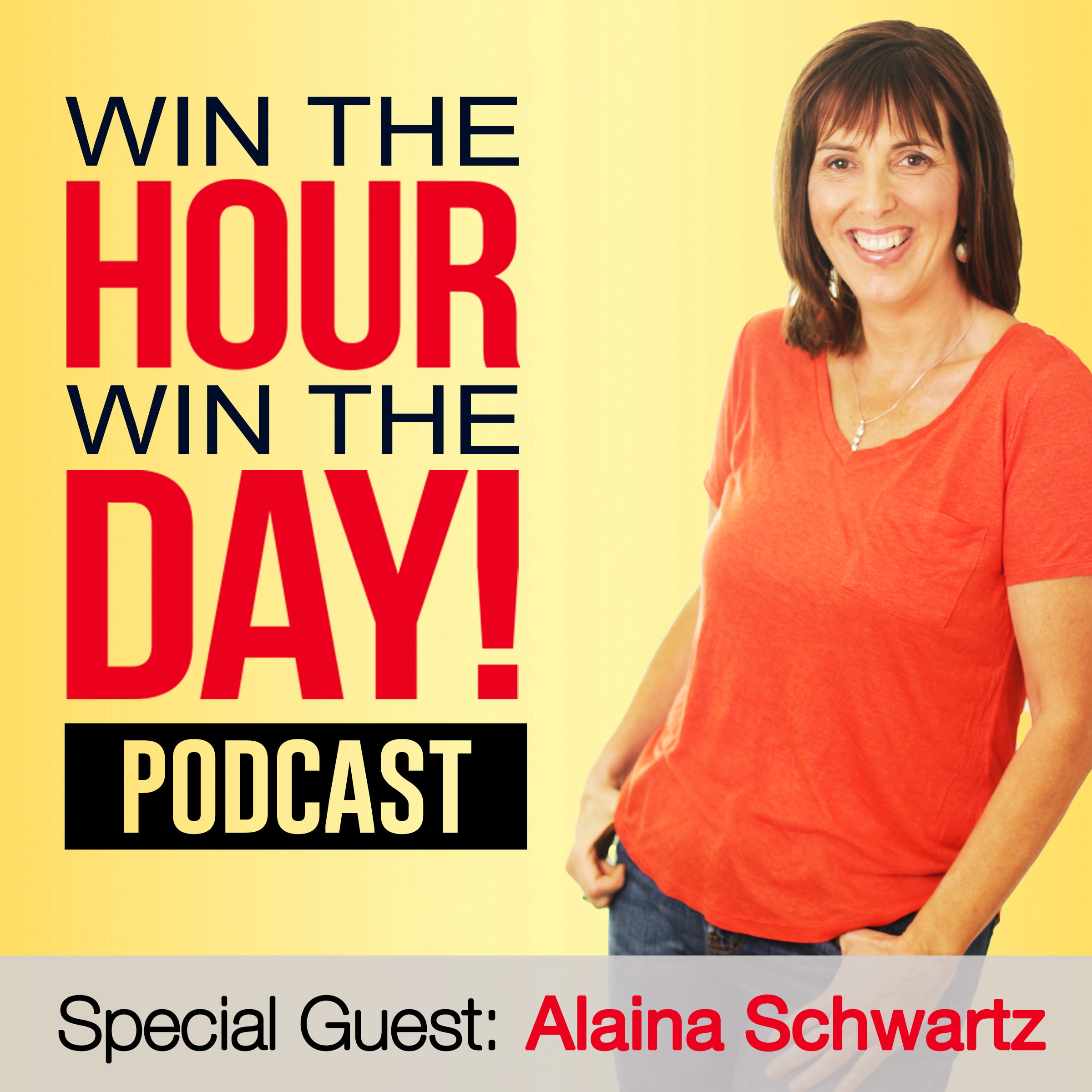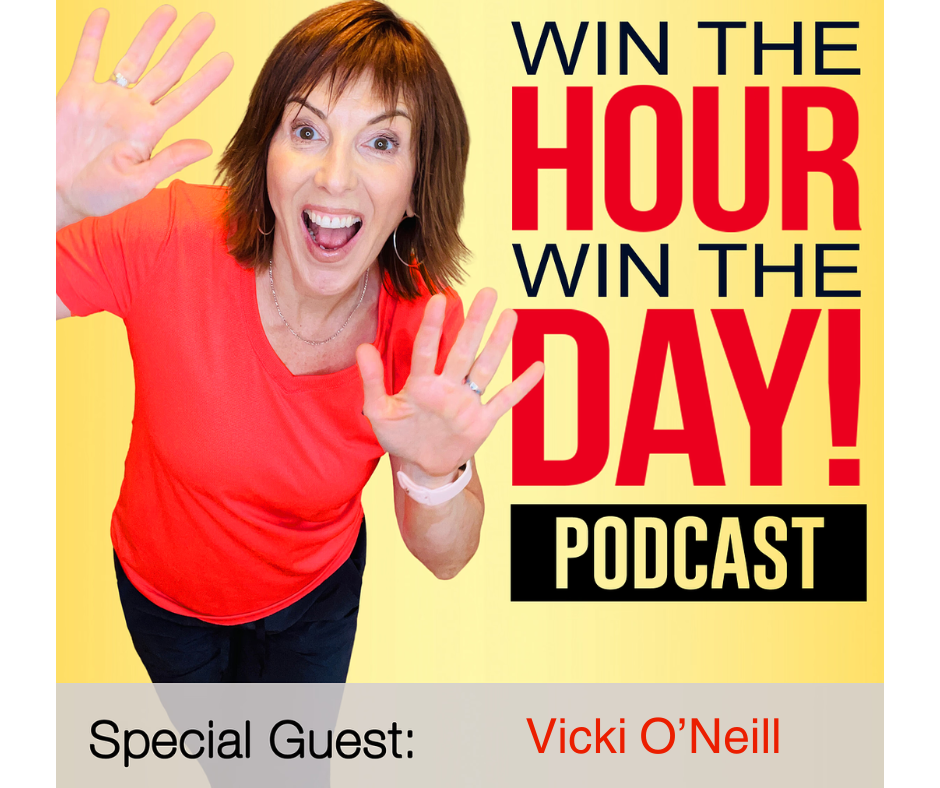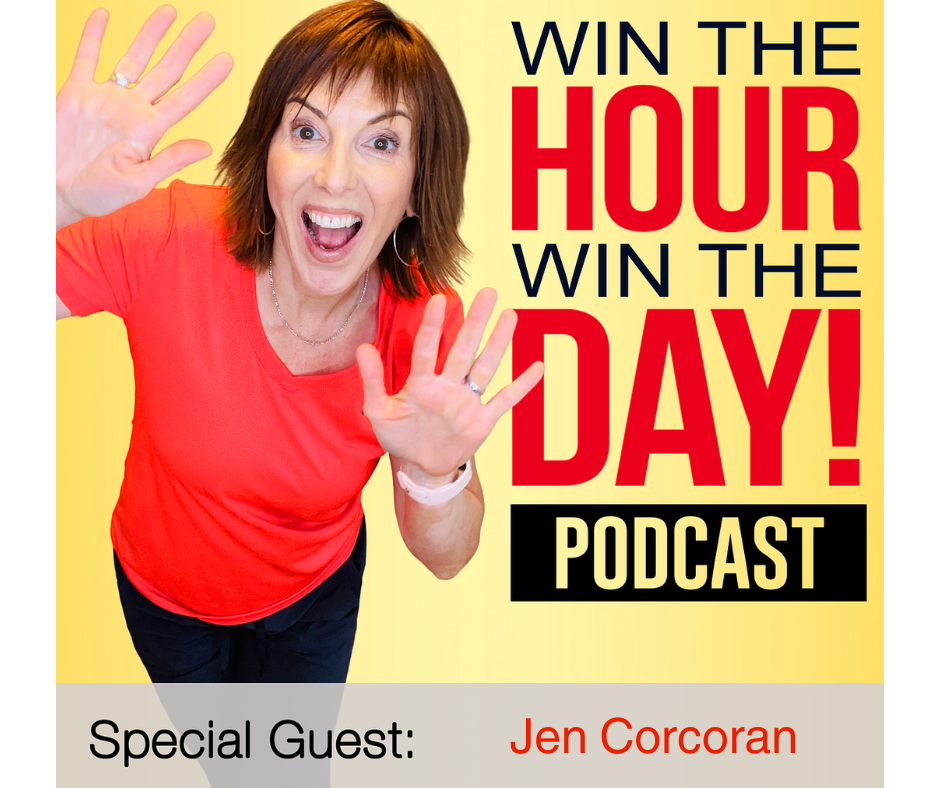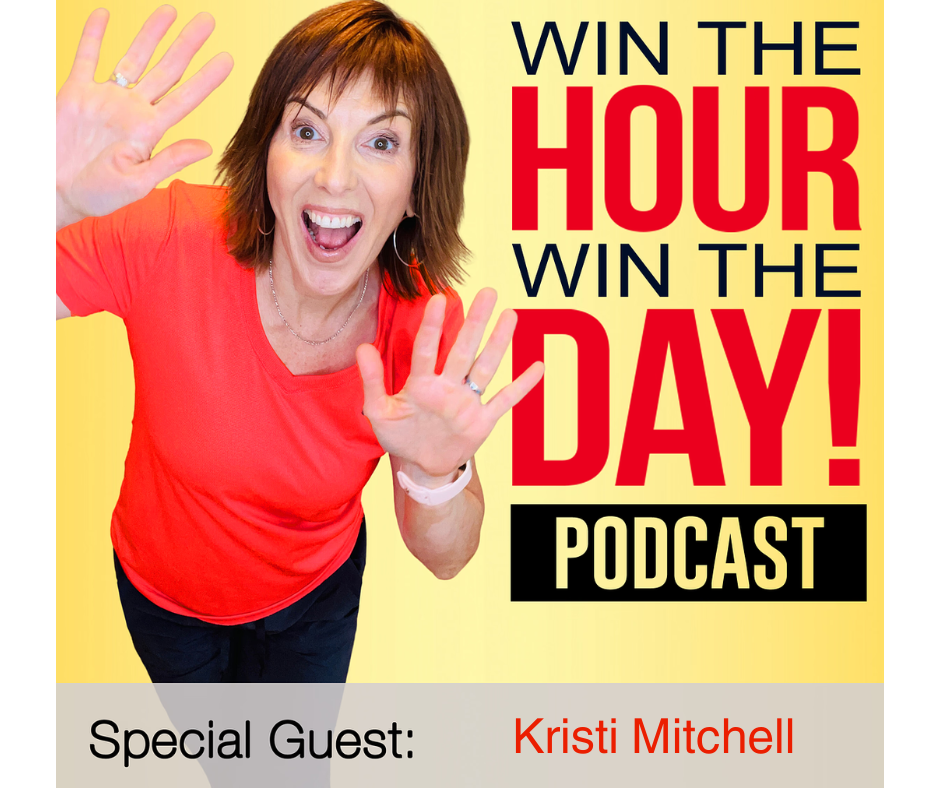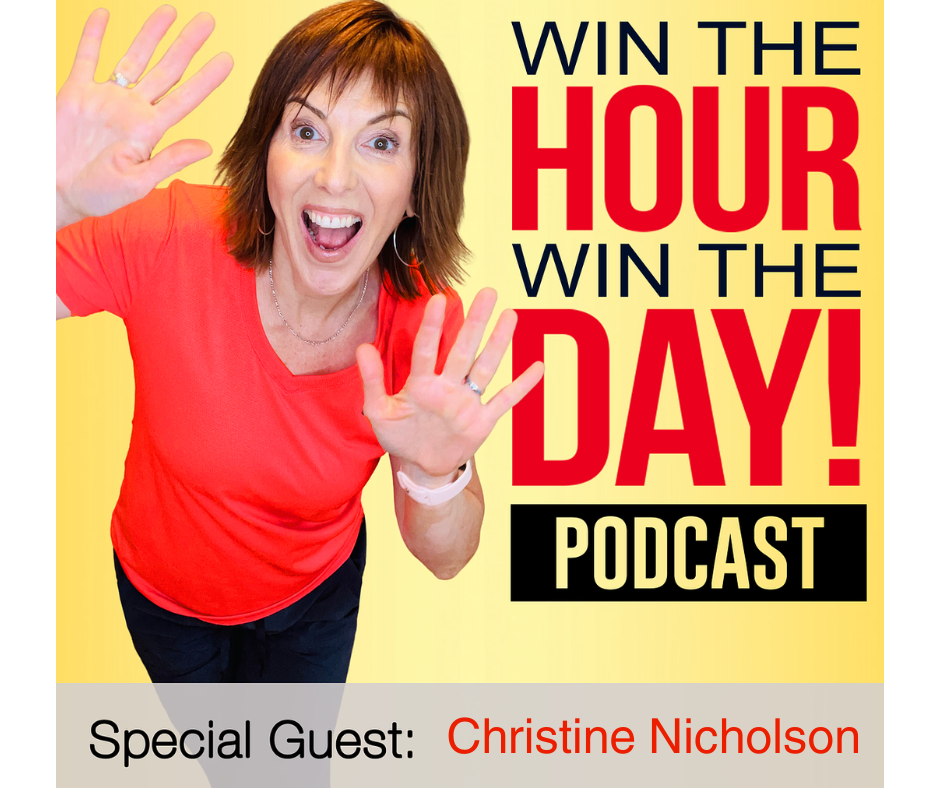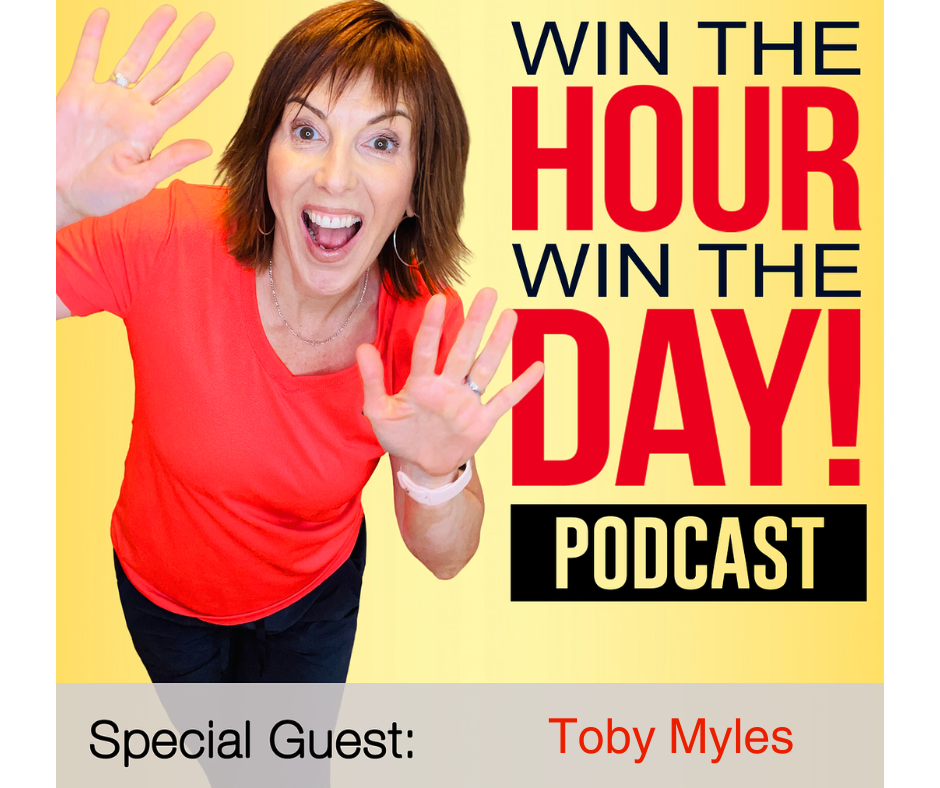Episode Summary
Alaina Schwartz gives us the science, tips and techniques to get us out of the dreaded grind.
Learn how
-baby steps can give us giant results
-the one thing that very successful people do and you can too
-how to easily access your higher intelligence Highly energetic and dynamic
Alaina Schwartz is an international speaker and business & mindset mentor. Her deep passion is providing a framework for successful, mission-driven founders and leaders to achieve next level success and unlock their full potential. She provides iron-clad strategies, tools and techniques to empower her clients to scale phenomenal impact and income, while creating financial and time freedom. She knows that what got founders and leaders to where they are now isn’t going to get them where they want to go. She solves business problems with a combination of neuroplasticity, business strategy, peak performance, quantum physics, psychology, communication and leadership development.
Join The Community: https://www.facebook.com/groups/WinTheHourWinTheDay/
Win The Hour, Win The Day! www.winthehourwintheday.com
Podcast: Win The Hour, Win The Day Podcast
Facebook: https://www.facebook.com/winthehourwintheday/
LinkedIn: https://www.linkedin.com/company/win-the-hour-win-the-day-podcast
You can find Alaina Schwartz at:
Website: https://alainaschwartz.com
LinkedIn: https://www.linkedin.com/in/alainaschwartz
Facebook: https://www.facebook.com/AlainaSchwartz
Instagram: https://www.instagram.com/alaina.schwartz
Check out the Outsourcing Playbook For Busy Entrepreneurs here: https://winthehourwintheday.com/outsourcing-playbook
Alaina SchwartzPodcast Transcription
[00:26:53]. Kris Ward: Hey, everyone. Welcome to another episode of when the hour, when the day and I am your host, Chris ward. And today we have the very energetic and dynamic Elaina Swartz. Now she’s an international speaker and an amazing entrepreneur in her own, right. But she has a deep passion for providing a framework for successful mission-driven founders and leaders.
[00:27:18] And you know what, that’s just a lot of words, what I want to tell you, she’s going to talk to us about habits and how she believes that’s really the framework at 80% of what we need as entrepreneurs. And it’s really interesting. So I can’t wait to dive into this Elena. Welcome to the show.
[00:27:34] Alaina Schwartz: Hey, thank you.
[00:27:34] Thank you. Thank you, Chris. I am absolutely thrilled. And what a pleasure to be
[00:27:38] Kris Ward: here with you. Okay, awesome. So you know what? This is one of these topics where we don’t know what we don’t know. So why don’t you start us off with, I guess what would be the biggest myths or misunderstandings? Because it’s more than just like, Oh, develop a routine, have a habit, right?
[00:27:52] Alaina Schwartz: Yeah, yeah, yeah. Okay. I’m a really science geek here. So this, this is going to go down a rabbit hole a little bit, but there’s really practical stuff that comes out of this. And, and so from a practical perspective, like, you know, we have literally wired in our brains. The way that we have been the things that we do and the results that we get, it’s all like your beliefs create your thoughts and your thoughts create your emotions and your emotions dictate the kinds of action you take. And then the action you take dictates results. Except most people keep getting results that they don’t want, but they don’t realize that there’s this. Uh, psycho cybernetic loop that’s happening. And so as a result, they keep doing the same things and keep getting the same results and keep expecting something different.
[00:28:38] And so one of the things that you have to do since these, these beliefs that we have that are in the subconscious mind, and we’re completely unaware of these beliefs that we have, have been wired into your brain. They’re hard wired into your brain and to be able to move those beliefs to a different, more empowering belief, a belief that you can be successful in your business, that you know, your clients or customers want to enroll to work with you, that you can scale your business to a certain level that you don’t have to work hard.
[00:29:10] That, that I believe that’s one of the biggest myths
[00:29:11] Kris Ward: in businesses. Oh, don’t even get me started, please. Okay. I believe that. Which makes you that doesn’t kill you. Makes you tired. Okay. So that is a whole show on its own because there is no reason to be grinding it out. Anyhow, continue. I apologize.
[00:29:27] Alaina Schwartz: And so part of the way we switched that up, so we’re not grinding it out anymore is to change our habits.
[00:29:34] So part of it is changing your beliefs, changing your thinking, but to change your experience, it also is how we do things in the world. And I’ll give you really practical. I would bet that probably 90 to 99% of your listeners wake up in the morning and what’s the first thing they do. They check out. Oh, nice.
[00:29:57] Now they’re down the rabbit hole. The rabbit hole might be social media. The rabbit hole might email whatever the rabbit hole is for that person. But now all of a sudden you’re your body is wired. Like. The stress response, which most people feel because they’re not living the life they want, they’re not getting the results they want.
[00:30:18] Whatever else they’re thinking is causing this stress, causes these emotions, these, these hormones to, um, dump in our bodies, cortisol, adrenaline, Nora, and epinephrin, et cetera. Yeah. And we’re actually addicted to those hormones. We’re like addicts that are constantly trying to get another hit. So what happens is your body wants you to keep doing the same things over and over again, so we can keep getting a hit of those hormones.
[00:30:44] And so what do you, what happens when you pick up that phone? First thing in the morning, There’s the hit. Now, all of a sudden, you’re often running to the same predictable future as your predictable past. So what do you have to do some checking your phone for the first hour you get up? Like I only check my phone in the morning to see if I’ve got like people book into my calendar.
[00:31:04] I want to see when my first, you know, my first call is or whatever. That’s the only thing I check my phone with. I’m off my phone because otherwise, if you’re going to keep it. Feeling the same way and getting that same feeling response, then your body’s going to keep dumping those hormones of stress and you keep getting the same thing.
[00:31:24] So do something different. Like one of the things that I love to do is even before I’m conscious that I’ve opened my eyes my, before my feet hit the ground, I start going in my head of three things I’m grateful for. And I really. Feel them not just think about them. It’s easy to think about things you’re grateful for, but what really starts to shift those neural synaptic connections in the brain is our feelings.
[00:31:51] So, so by cultivating different feelings, by cultivating an attitude of gratitude before a feet even hit the ground. And by not looking at your phone, for example, two really simple things that start your day off in a different way. Now your ego is going to be screaming, check your phone, check your phone.
[00:32:09] What are you doing? Check your phone.
[00:32:11] Kris Ward: You know what, let me, let me jump in there. It’s so like, there’s so many things I don’t even know where to start. So one of them might be like, Oh, I’m really excited. I’m always excited about everything. Right? So. You know, one of it is like, Oh, I want to check, did that person get back to me?
[00:32:27] Or did we get this? They would get that or whatever I’m excited about. So what, what really helped me was I was reading this book, the atomic habits, I’m sure you’ve heard of it. And he sort of explained, you know, who does, what kind of person do you want to be? And I know that everyone thinks it’s great. I have high energy, but diffusing that as a problem, like, that’s great until you want to go to sleep at night.
[00:32:49] Cause you’re like, Oh, I energy happy and blah, blah, blah. So I have to learn to put things in play, not only to protect my energy, but also what kind of person do I want to be? And when I read that book, it really helped me because then I realized. You know what this is, this is very sad. I’m going to tell you.
[00:33:08] So I tried to do the whole meditation thing. I’ve got this little audio thing. It’s 15 minutes. That’s great. That sounds wonderful. Like on this wonderful Zen person, I’m going to take better care of myself. And I did find it really helped to start the day. However, I was checking emails beforehand. So what the point?
[00:33:23] What’s the point of that? We go with this, Chris, right? So I had to learn like, Oh, if I’m going to be doing the self care routine and studies show why it matters. And then I buy into the books that I’ve read and the studies have shown. I know. Cause sometimes you wrap your head around these things. Like I used to think, Oh yeah, yeah.
[00:33:41] You know, that’s fine, but I’m different. I can, I can outwork that or I can do this. So finally I had to accept that maybe all the studies and all the signs included my brain too. Right. Cause you think no, no, I’m different. So that also helped me too is like, Oh, so, and the chain of habits breaking the chain.
[00:34:01] So it’s like, Oh, so I’ll just check my email quickly this morning. Well then, okay. Then what’s going to be different tomorrow morning. So these are, but I think what you’re saying to us, which I think is really powerful. I want people to hear this is these little micro changes are everything that make the big changes.
[00:34:17] Yes. And we forget that you think, okay, because tomorrow’s a beautiful day to start anything. So I think what you’re talking about is how empowering it is when you sort of can, you know, be determined and make these micro changes. So it might be hard for people to hear about not diving into the phone. All right.
[00:34:35] Let’s try something else. What is it? Another area that we need to sort of be educated on.
[00:34:41] Alaina Schwartz: Yeah. And, and I love that. And I just want to say, to just acknowledge something that you said, cause I think it’s so important, which is that ton of baby steps create giant change, right. Tend to think, Oh, this is such a small thing, but all of these small things, not only add up, but they’re also building the character because part of what we need to create a successful business is to be in an energetic alignment.
[00:35:09] For the vision that we’re creating and all of these little things take us out of alignment. And that’s really the thing is that all of these little things take us out of alignment. So, so when I talk about changing habits, I will have people do things that they wouldn’t ordinarily do. So, for example, you wake up, you check your phone, you go to the bathroom, maybe you take a shower, you go down, you make coffee, you have breakfast.
[00:35:37] You know, I don’t know, maybe somewhere along that you work out. And then all of a sudden you’re again in the same pattern, day in and day out and day in and day out. So it might be switch up the order, start with gratitude, start with meditation. It’s how I start my day actually. And actually I work out first and then I meditate because I find that my body will.
[00:35:59] Sit longer in meditation and I meditate for about an hour a day. Dear God. Okay. I
[00:36:04] Kris Ward: got it. I am now up to 15 minutes and I’m pretty proud of Chris
[00:36:12] Alaina Schwartz: and you should be, but I’m a mindset coach, right? I’m going, Oh my God, that coach. So if I’m not walking the walk on a regular basis basis, there’s like a major issue there so far. You know, it’s about, it’s about that alignment again. So it’s, I, I work out in the morning and then I meditate and that’s like my morning ritual, but I’m ensuring that I’m protecting myself from the external environment that can get in my head and create.
[00:36:40] Something that I don’t want to happen. Right. So, um, my cat is
[00:36:45] Kris Ward: all of a sudden getting in the way here, but those of us that’ll be watching us on YouTube. She’s got quite a mighty cat that is very eager to be interviewed. So are you eager?
[00:36:57] Alaina Schwartz: Yeah. So, um, So it’s really protecting your energy and protecting, like you said, who do you really want to be?
[00:37:05] So if you’re making, you know, a hundred thousand dollars a year, but you want to be earning a hundred thousand dollars a month, how does that a hundred thousand dollars a month person really apt? What are they doing? Like they protect their time. They don’t let things right. Really big thing that people do is they say no far more to things that they say yes to.
[00:37:29] And it’s about really setting clear boundaries around what you say no to as much as what you say. Okay.
[00:37:38] Kris Ward: Let me jump in here because I have to unpack a couple of things you said, which are very powerful. So yeah. Let’s backtrack. One of them, it is you’re right. These people who make a lot of money and very successful, you know, they are protecting your energy.
[00:37:50] And I talk about people when I’m talking about productivity, your team building and stuff like you don’t email some of these super important and wealthy and they get right back to you in five minutes. Like that’s not how it happens. Right. So they, they have all that sorted out really specifically. And that’s, you know, that’s how they protect their energy.
[00:38:06] And I know for me, even still. And I do it so much better than I used to years ago. Right. Cause then the, when the hour, when the day book, it opens, you know, with, with a small but significant fire. And there’s another chapter where I’m really seriously, nearly electrocuted myself to death because I was in a rush.
[00:38:21] And so I’ve learned that rushing racing time no longer works, but also even still, if I get caught up. Into, even the enthusiasm, all of the stuff we’re doing, like I now know not to do something rather than to rush, especially with a team meeting or showing up with other people. You had this idea that you could, I did.
[00:38:41] Anyhow, let me not speak for you people. I had this idea that I could smile and be in a rush and just sort of. Sued myself while this person I felt was talking too slow, but maybe they’re not talking to you. So if I wasn’t in such a friggin rush, right. So I’ve learned that it’s damaging to the situation and on all levels, if I show up in a rush date, like I have to change my energy, I have.
[00:39:03] Okay. All right. I have to change my energy. This isn’t work. This is not going to serve me. So I think what’s happening is, you know, these are little things we’re talking about, but I know they’ve had really profound impact on my business and my relationships at work before five and after five. So how does that, I know you’re all about mindset and stuff like that.
[00:39:22] So tell us a little bit of how the science supports that without getting too crazy on us. Cause I know about attention residue and decision fatigue and all that stuff wears down the brain, like a whole bunch of apps open on your phone and people don’t understand the power of that, but these little micro changes, you know, really become powerful definitions of how you manage effectively.
[00:39:46] I
[00:39:46] Alaina Schwartz: think. They, they do. They do. And I, and I love really what you’re talking about because, because it is really, you talk about like energy. Okay. So go back and then I’ll talk about the science, but go back to people who are, you know, um, at a different level in their business, right. They’re probably time-blocking, they probably only once or twice a day are checking their emails and they go through their emails and.
[00:40:09] You know, maybe they’ll set a time or maybe they won’t, but they’ll go okay. For the next half an hour, I’m checking my emails and then I’m done and they walk away from it. Like they, they really protect their time. And part of that is, you know, from, from a brain, from the physiological perspective, We’re in the mode.
[00:40:26] Like I’ll talk about content creation for a minute, because I think it’s a really easy to understand from content creation, which is from content creation. If you’re going to record a bunch of videos and you’re writing, you’re writing the script for a bunch of videos, then that’s one part of the brain and it takes months.
[00:40:44] Right. But if you go from writing a script to recording, to writing a script, to recording, to writing a script, to recording, which is multitasking, which is what people do all the time. It’s using utilizing different parts of the brain. And then there’s this lag that the brain has to go back to the other part, because you’re now out of you’re now out of like where you you’re out of the compartment in your brain, that path.
[00:41:09] Function and you’re asking it to do a different function. And so you’re losing time. So if you were to like group all of your content writing together and all of your content recording together, then all of a sudden you have a different experience of your brain and your farm. We’re effective. You’re more productive.
[00:41:29] You’re utilizing time in a completely different way because you’re working with your brain, not against it. So, you know, all of these things. Studies have shown how multitasking is really ineffective. It doesn’t really work.
[00:41:44] Kris Ward: No, it doesn’t. And I want to jump in here because I know, uh, we talked about that and when the are, when the day it’s really like 40% less effective.
[00:41:50] And I, I did a video once and I showed spraying like shaving cream on a wall and then wiping it off and showing what’s left behind is your attention residue like that? You really just, again, burn out like your battery on your phone with a bunch of apps open when you go do something and you come back.
[00:42:06] You don’t get all the juice that you didn’t come back with all that you left with. Right. So it is really powerful. And I, and, and I know I. You’re preaching to the choir. I knew I rave on about that all the time, but it’s really interesting to hear somebody else have such clarity on it, because I often say to you can’t shine a spotlight on two spots.
[00:42:23] Like that’s just it right. One spot. So, okay. So we’re in a group where you can all listen in as we agree,
[00:42:31] Alaina Schwartz: but also there’s another piece about what you said, which is about presence when you’re rushing. Round when you’re thinking that you can accomplish it from, from, you know, you’re in the middle of something and then you move to something else.
[00:42:44] You’re no longer present with it. And can this be when, when we’re present, there really is no past, there really is no future. There’s only this moment now. And when we can move into the present moment, we have access to all kinds of resources, creativity, higher levels of intelligence, um, inspiration that we wouldn’t have otherwise had.
[00:43:04] Access to that we can now access, which means, for example, I’ll go back to using content creation. I used to really be in my head when I created content and it would take me two hours to write a post. It was painful for me. And then I learned techniques. I just developed techniques for me to get out of my head, to get into my body.
[00:43:24] I can write a post in 15 minutes now. So what am I saving an hour and 45 minutes for every single post that I write. But it’s because I’m present with it, right? It’s because I’m in my body. I’m not in my head about it. I’m in my body. And when we do that, we have access to a whole host of resources that we don’t have.
[00:43:44] And then synchronicity start to happen. We move into flow, more things feel like we’re efforting so much less. We’re not in the hustle, hustle, go, go grind, grind anymore. And, and our businesses become a completely different experience
[00:43:57] Kris Ward: as a result. A hundred percent. I know for me, I haven’t, if you’re listening in, I have this wonderful person on my team.
[00:44:04] And every once in a while he’ll be like, Oh, like I’ll say something and like, okay, Chris, like, and he’s letting me know, like there’s a tone there. And the tone is never being speaking harshly to Evan or judgment or anything. It’s Mike I’m in rush mode. So I’m talking about something. It sounds like I’m getting.
[00:44:20] Inpatient and I am patient because I’m trying to move so quickly. Now I have this, like, it’s like a flare up. I have this like 2% of what I used to live of 90%, but it, you know, I’m still in recovery, so I’m a recovering Russia holic. So, so it comes up every once in a while and now I can hear it cause it’s not how I live.
[00:44:38] And then I’ll realize, Oh, my tone, isn’t coming out the way it should because I’m in rush mode. And to add to your point too, I know when I was doing research for when the hour, when the day book. Uh, you know, all the significant meaningful inventions in the history of time were done at times of rest relaxation or play, because that’s how the brain works.
[00:44:57] When you’re racing the clock from climbing the mountain and hustle, hustle, hustle, that’s you, you know, you’re in survival mode and that’s not creative mode.
[00:45:05] Alaina Schwartz: Yeah. Yeah. And I love that. And actually Thomas Edison and Benjamin Franklin used to do an actual habit that did them. They would actually sit in a chair and start to take a nap and they would hold like a ball in their hand so that they knew that the minute that they fell asleep, the ball would fall out of their hand.
[00:45:20] And they’d be in that alpha state of brainwave. Because what we were really talking about is moving it out of high beta brainwave, which is fight flight or freeze and moving into lower States of beta, which is a concentrated, focused attention even into alpha States, which is almost like that premeditated state.
[00:45:37] It’s almost like the pre hypnotic state. Like if you’re driving your car and you don’t even realize that you’re driving anymore, you’re really not in, you know, you’re more in that alpha. And so they would get their biggest inspiration and ideas for an invention they were working on in that state. So they would posit a question right before they sat down to fall asleep.
[00:45:57] And then when the ball fell out of their hand, the ideas would come
[00:46:00] Kris Ward: to them. Okay. Hold on, though. When the ball falls in their hand, now they’re asleep. So know how I.
[00:46:06] Alaina Schwartz: Cause it wakes them
[00:46:07] Kris Ward: up. The process of letting go the ball would wake them up, letting them go with the ball. Because now you had Chris getting up in the middle of the night to go to the bathroom, making notes back on her phones.
[00:46:18] I’m like, this is not helpful to me. Okay. No, no. I see what you’re saying. Okay. Clarify, clarify, guide.
[00:46:24] Alaina Schwartz: Then we’ll do this during the day. Not at night, they would do this during the day, potentially to get an idea to get in spring, because that makes sense that it came out when they knew that the, the, those ideas.
[00:46:35] Separation came from them being out of that higher beta brainwave state. And that was the only way they were going to get those, you know, access that higher level of intelligence. And so they would, they would gain it essentially to be able to access that.
[00:46:49] Kris Ward: Yeah, no, I find that too. I, in the summer I do a lot of bike riding and I’m like, Oh my God, I got pulled over.
[00:46:55] I got another great idea. Right. Yeah. Perfect. Perfect. Okay. Awesome. All right. So we’ve, we’re looking at, we’ve got a few minutes left. If we’re looking now to say. What’s that one area you think, you know, that people should be like, you know, that one habit they should break that would give them the best results.
[00:47:14] Is it the cell phone in the morning? What, where would you start with
[00:47:16] Alaina Schwartz: that? Uh, I think the cell phone in the morning is good. And sometimes what I would say is, you know, this is going to sound funny, but our brains are wired for negativity bias. Our brains are wired to focus on what’s wrong. And that comes from, you know, ancestral times of when you left your cave, you needed to know you weren’t going to get eaten by a saber tooth tiger.
[00:47:36] So you search for what was wrong. And that critter part of our brain really has not evolved. And so we tend to search for what’s wrong and the more that you can search for what’s right. The more that you can keep kind of an evidence journal of what’s going, right. A gratitude journal of, of what you’re appreciating.
[00:47:55] Those, I would say are the two habits to actually add. Rather than taking away, because the more that you live in that state, the more those other habits will start falling away. Because when you feel good, you don’t want to be doing things that don’t feel good. We
[00:48:08] Kris Ward: talked, we had that conversation right now.
[00:48:10] We
[00:48:10] Alaina Schwartz: got on. Right? You feel good? You don’t want to be doing things that take you out of feeling good. And so the more that you’re feeling in that generative state, the more that you’re feeling in that state of flow, the more you want to cultivate that feeling. And so the more you do those habits, the more the old ones will naturally start to fall away.
[00:48:30] Anyway.
[00:48:31] Kris Ward: Yeah, that’s a really great point. So that hole, it is a dark hole and you crawl into your phone and you’re really in search mode and you, we all know, everybody knows this. You could get 10 compliments or a whole, and then you got one client that’s concerned about something, and that’s not how you should start the day reading that at whatever six Oh five in the morning.
[00:48:48] Right. And I also look at it too, is, you know, if you’re listening to this and you go, Oh, that’s ridiculous, or yeah, I can do it. And then you try it and you fail. Of course keep trying, but. Also the concern of why does that idea sound so ridiculous? Or why can’t you leave your phone for an hour? You know, are you a firefighter?
[00:49:08] And they have no other way of getting ahold of you. So really the fact that that seems like, you know, too much to ask. You need to examine that as well. Yeah. I
[00:49:20] Alaina Schwartz: actually heard a lot of seven figure business owners talk about how they leave their phones in a different room and some of them will leave it in their car so that they’re not tempted by it to actually look at it because the temptation, I mean, look, you know, Facebook hired a 400 over 400 MIT grads to help addict us to those.
[00:49:39] Yeah. You know, there’s a reason why they’re so addictive. And at the same token, we have to do everything within our power to resist that temptation so that we can create what we really want to create. And the question is, you know, that’s a great question that you asked of like, why, why wouldn’t you do it is the question is what’s your bigger priority?
[00:49:59] Is your bigger priority. Being able to check your phone or is your bigger priority
[00:50:03] Kris Ward: growing your business? Yeah. Amen. Amen. Okay. Well that was absolutely fantastic. And, uh, Alena, we just are thrilled to have you, we, we just love your energy and all your spouts of wisdom. Where can people get more of you?
[00:50:19] Alaina Schwartz: They can get more of me through my website. The site, which is www.elenaschwartz.com. And if people want to have conversations with me and take this to the next level, I am offering a handful of five, um, to your audience of, you know, free consults where we just literally look at next steps. How can you move the dial forward?
[00:50:39] And that would be support@elenaschwartz.com. Awesome. Hang out on LinkedIn. A lot of ton. I mean, I am on other media, but my, my main hangout is LinkedIn, which is if you searched me Elena Schwartz, you’d find a ton of podcasts and other great free resources there as well.
[00:50:56] Kris Ward: Awesome. Well, thank you so much. We appreciate you and everyone else to the next episode.
[00:51:01] We’ll see you soon.
Alaina Schwartz: Thank you.

